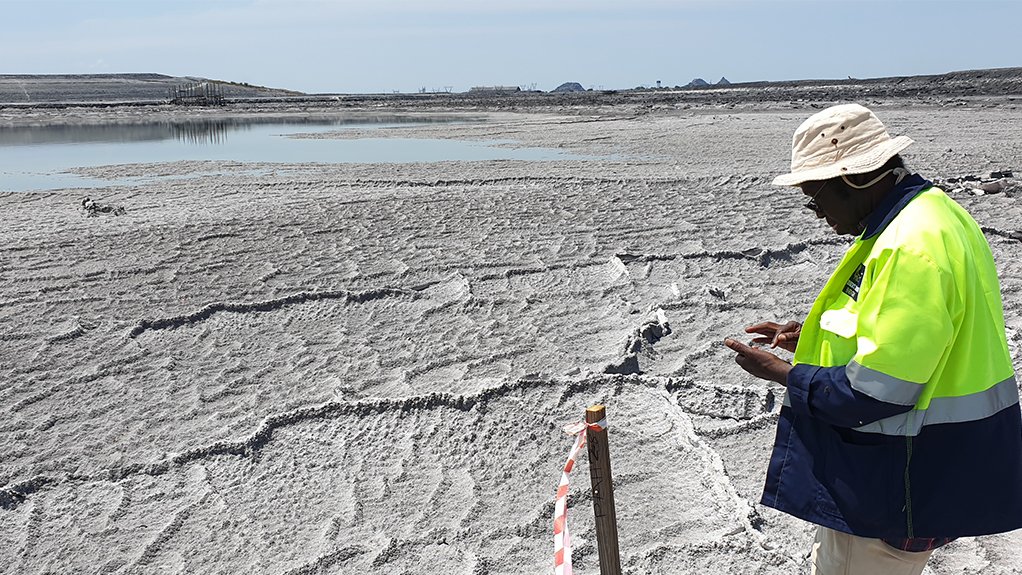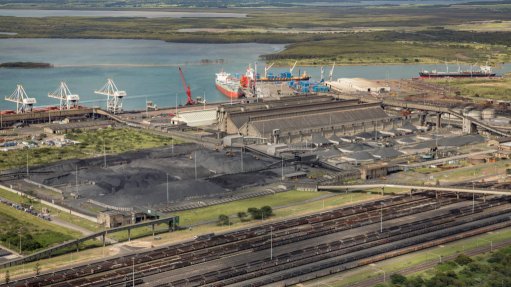Rainbow sets sights on full rehabilitation of Phalaborwa gypsum stacks through deal with trader Nexus
London-listed Rainbow Rare Earths has signed a letter of intent (LoI) to enter into an offtake agreement with international trading company Nexus Intertrade, under which Nexus will acquire gypsum from Rainbow's Phalaborwa project, in South Africa, and sell it to end-users.
Rainbow expects production at the Phalaborwa project, where it will recover rare earths from phosphogypsum stacks that occur as a by-product of phosphoric acid production, to start in 2026.
With the project, it is also aiming to contribute to a cleaner environment.
“This agreement is a real win-win for Rainbow, Nexus and our stakeholders. The Phalaborwa process is founded on the principles of circularity as we are taking a waste product, cleaning it and extracting value from it – both via the recovery of the rare earth elements and then via the sale of the benign gypsum that is produced as the by-product of the process.
"This will also have a positive impact on our project economics with a lower level of long-term gypsum deposition from the project than anticipated in the preliminary economic assessment," comments Rainbow CEO George Bennett.
He adds that the agreement will also contribute to the full environmental rehabilitation of the project site.
"Not only will we be neutralising the acid water currently impacting the unlined gypsum stacks and then depositing our waste material onto new lined stacks, but we will eventually be fully depleting these stacks via the sale of the 'benign' gypsum. This will allow for a full-circle environmental rehabilitation of the site while delivering a ‘green gypsum’ product to Nexus’ domestic and international customer base.
"This offtake agreement will be helpful to bolster local industry, as well as providing an additional revenue stream to Rainbow, demonstrating the benefits to all parties,” he says.
Rainbow explains that the gypsum stacks at Phalaborwa have accumulated acid water over time, but that the company's process will neutralise the acid, rendering the water suitable for use in the process plant.
The by-product of Rainbow’s process will be a cleaner, benign gypsum, which no longer contains any acid water residue. The benign gypsum will be stored on new stacks, lined according to International Finance Corporation standards and Equator Principles.
Nexus will work with Rainbow to establish the grade and quality of the benign gypsum at Phalaborwa, which will, in turn, determine the blended average sales price per tonne, as well as the available markets for its use, both in South Africa and in neighbouring countries.
Nexus expects demand from the domestic cement manufacturing industry, the domestic gypsum board and plaster manufacturing industry, the domestic agricultural industry and from certain international export markets, to which it also has access, to be between 400 000 t/y and 600 000 t/y.
An exclusive five-year offtake agreement will be concluded once Rainbow and Nexus have agreed upon the annual tonnage of gypsum to be supplied and the market-related price per year, with the option for renewal for a further two five-year periods.
The Phalaborwa project currently has a mineral resource estimate of 30.4-million tonnes and a mine life of at least 14 years; however, the benign gypsum sales are expected to be a much longer-life operation, thereby having a positive socioeconomic effect on local industry.
Article Enquiry
Email Article
Save Article
Feedback
To advertise email advertising@creamermedia.co.za or click here
Press Office
Announcements
What's On
Subscribe to improve your user experience...
Option 1 (equivalent of R125 a month):
Receive a weekly copy of Creamer Media's Engineering News & Mining Weekly magazine
(print copy for those in South Africa and e-magazine for those outside of South Africa)
Receive daily email newsletters
Access to full search results
Access archive of magazine back copies
Access to Projects in Progress
Access to ONE Research Report of your choice in PDF format
Option 2 (equivalent of R375 a month):
All benefits from Option 1
PLUS
Access to Creamer Media's Research Channel Africa for ALL Research Reports, in PDF format, on various industrial and mining sectors
including Electricity; Water; Energy Transition; Hydrogen; Roads, Rail and Ports; Coal; Gold; Platinum; Battery Metals; etc.
Already a subscriber?
Forgotten your password?
Receive weekly copy of Creamer Media's Engineering News & Mining Weekly magazine (print copy for those in South Africa and e-magazine for those outside of South Africa)
➕
Recieve daily email newsletters
➕
Access to full search results
➕
Access archive of magazine back copies
➕
Access to Projects in Progress
➕
Access to ONE Research Report of your choice in PDF format
RESEARCH CHANNEL AFRICA
R4500 (equivalent of R375 a month)
SUBSCRIBEAll benefits from Option 1
➕
Access to Creamer Media's Research Channel Africa for ALL Research Reports on various industrial and mining sectors, in PDF format, including on:
Electricity
➕
Water
➕
Energy Transition
➕
Hydrogen
➕
Roads, Rail and Ports
➕
Coal
➕
Gold
➕
Platinum
➕
Battery Metals
➕
etc.
Receive all benefits from Option 1 or Option 2 delivered to numerous people at your company
➕
Multiple User names and Passwords for simultaneous log-ins
➕
Intranet integration access to all in your organisation





















